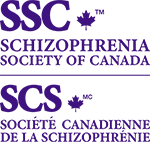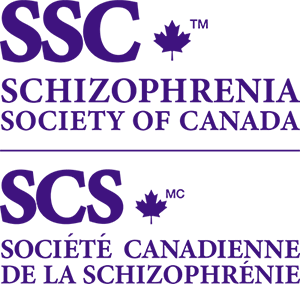Senate Committee Speaking Notes for Chris Summerville
The Schizophrenia Society of Canada (SSC) working with the 10 provincial schizophrenia societies has created a coalition of 12 national mental health organizations who have lobbied MPs and Senators concerning Bill C-14 (formerly Bill C-54). Members of the coalition met with particular members of the Legal and Constitutional Affairs Standing Senate Committee including the Chair, Senator Runciman and the bill’s sponsor, Senator McIntyre. Chris Summerville, CEO of the SSC appeared before the senate committee to testify regarding the weaknesses of the bill.
I would like to thank the Senate Committee for providing me with the opportunity to testify on Bill C-14, the Not Criminally Responsible Reform Act. My name is Chris Summerville and I am the CEO of the Schizophrenia Society of Canada. I am here not only on behalf of the Schizophrenia Society of Canada and all of its provincial counterparts but also on behalf of eleven national health organizations that see the necessity of working together to minimize the negative impact of Bill C-14.
I sit before you today, asking you to take the politics out of this issue. The politics has perpetuated fear when it comes to people living with a mental illness, and has allowed it to trump evidence. As professionals and law makers in Canada, we have a responsibility to ensure Canada’s laws effectively look after their welfare and well-being. Therefore, again, I ask you to study and debate the issue on the evidence and facts, and not the politics.
The mental health community has been told that Bill C-14 will not negatively impact people with a mental illness. If this were true, we would not be here today. This Bill will negatively impact people living with a mental illness, even if they have never come into contact with the law. I think of Canadians out there who start to realize that something is not right with their mind, perhaps even hearing voices, and not wanting to seek help, knowing what society and their government may think and do to them. It’s frightening and saddening.
We would like to emphasize, as we have said from the introduction of the Bill, that we wholeheartedly support changes that create greater involvement for victims in the process. It’s heartbreaking to see the issue turn into one of “us against them”.
When debating this issue and the bill, many often discuss striking a balance between the needs and rights of both victims of crime and those found not criminally responsible on account of a mental disorder. These discussions are often misguided. The solution is not about giving up certain rights and needs of people with a mental illness in order to provide greater ones to the victims. It’s about understanding mental illness and providing the tools and resources to ensure the crime is never committed in the first place or will never occur again. This is not an issue of give or take, but rather one of working together.
The mental health community does not support the creation of a “high risk accused” category based on the “brutality” of the crime. This is simply not evidence based and there is no correlation between high risk and the nature of the crime. It is stigmatizing, and will not protect Canadians or help victims in any shape or form. The legal community in Canada also concurs.
While the mental health community does not support a high risk accused category, we recognize how misguided fear has made it a politically attractive option. So if the Senate and government choses to move forward with Bill C-14, the following changes are required to minimize the harm it will cause:
- Undo the reverse onus set upon the new High-Risk Accused, requiring the Review Board or court to be “satisfied that there is not a substantial likelihood that the accused will use violence that could endanger the life or safety of another person”. Canada’s legal system usually places the onus on the Crown to prove why individuals should be detained when a crime is committed. An accused who has a mental illness should not face a greater burden than that faced by criminals who were fully aware of the crime they committed. Maintaining the “high-risk” label should be the responsibility of the Crown. Giving courts greater responsibilities within Bill C-14 has been welcomed and/or encouraged by victims’ groups.
- Remove restrictions that will limit access to treatment. Without argument, victims who wish to have no interaction with the individuals found Not Criminally Responsible should be provided with safeguards to ensure no such interactions occur. We support the changes in the Bill that better inform victims. The purpose of treating people found NCR is to help them recover and lead healthy lives, including being reintegrated into society. This requires many forms of treatment. Therefore, we seek that the Bill allow for NCR accused to be absent from the hospital for reasons related to his or her treatment if the accused is escorted by a person who is authorized by the hospital and a structured plan has been prepared to address any risks related to the accused’s absence. This amendment adds significant safeguards for the public and the victims without limiting the patient’s access to community-based treatment resources.
- Eliminate the retroactivity of the Bill for patients who have already been granted a conditional discharge. Eliminating the retroactivity will not affect any of the high profile cases that have been associated with this Bill. What the proposed legislation has done is cause uncertainty and anxiety to stable individuals who have been granted conditional discharge, with some of these individuals fearing that certain characteristics of their offence or their history will result in the granting of the “high-risk” designation and an automatic return to custody. Making the Bill retroactive for those well on their way to successful community reintegration will not enhance public safety or victims’ rights but only reverse progress made by these individuals.
I cannot emphasize enough that these three recommendations will not decrease public safely or minimize victims’ rights in any way. In fact, they contribute to the success of both. If there is no intention for Bill C-14 to negatively impact people living with a mental illness, then all three amendments will be put forward by the Senate.
I would like to conclude by the thanking the Committee again and ask them to stand up for people living with mental illness in Canada. These are our mothers, fathers, brother and sisters, children and grandchildren. It is possible to stand by them as you stand with the victims. The mental health community is already doing so.
Thank you.
If you get asked who the 11 national health organizations are:
- Canadian Association for Suicide Prevention
- Canadian Association of Social Workers
- Canadian Mental Health Association
- Canadian Nurses Association
- Canadian Psychological Association
- Centre for Addiction and Mental Health
- Mood Disorders Society of Canada
- National Network for Mental Health
- Peer Development Initiative
- Psychosocial Rehabilitation Canada
- Schizophrenia Society of Canada
CHANGE YOUR LIFE TODAY
Your mental illness does not define you. Your strength and courage does.


